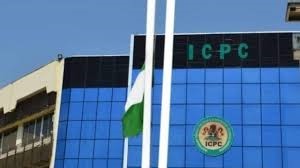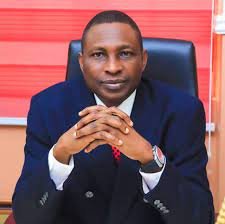362 total views today
By Isaac Aregbesola, News Agency of Nigeria (NAN)
Corruption, a scourge that has plagued humanity for centuries, has been aptly described as the “deadliest affliction of humanity after terrorism” by Ola Olukoyede, Chairman of the Economic and Financial Crimes Commission (EFCC).
This stark reality underscores the devastating impact of corruption on societies worldwide as it perpetuates poverty, inequality, and social injustice.
In Nigeria, where corruption has long been a pervasive problem, the government has declared an all-out war on this menace, with the EFCC at the forefront of efforts to combat it.
The appointment of the Olukoyede by President Bola Tinubu as the EFCC Chairman, thus showed a demonstration of renewed commitment to tackling this scourge.
This step brought to fore the statement by an anti-corruption crusader and rights activist, Femi Falana, who once said, “the fight against corruption is a fight for the soul of Nigeria”.
The deliberate choice of Olukoyede, a seasoned expert in combating fraud, to lead the anti-corruption efforts, set the tone to achieve this goal, as the Latin phrase “ex nihilo nihilo” suggests – nothing comes from nothing.
In other words, the achievements that followed weren’t mere coincidence. The impressive track records of the EFCC in its anti-graft war more than a year ago, under Olukoyede’s leadership, are a testament to the effectiveness of his appointment.
Under his leadership, the commission has made significant strides in tackling corruption, with a renewed focus on strengthening institutions, promoting transparency, and holding accountable those who engage in corrupt practices.
The commission has been at the forefront of the anti-corruption battle, working tirelessly to investigate, prosecute, and recover proceeds of corruption.
In the last one year, corruption and corrupt practices have reduced drastically, as hell is being let loose on those indulging in sharp and corrupt practices in the country.
The entire nation is lauding the EFCC’s fresh approach, which is in compliance with the international standards, to fighting corruption.
Even the toughest critics would agree that the EFCC’s track record shows that the government is making real progress in its fight against corruption.
The EFCC has undergone significant changes, and the results are already showing. Foreign investors are taking notice, and the local business community is feeling hopeful.
Notable among the achievements of the anti-graft agency in the last one year is the record-breaking asset recovery of a 150,500-square-meter estate with 753 duplexes and other apartments in Abuja.
The achievements, according to Olukoyede, also include recovery of over N248 billion, 105 million dollars and the securing of 3,455 convictions.
The commission within the year recovered N248, 750,049,365.52; $105,423,190.39; £53,133.64; €172,547.10; T1,300.00 Indian Rupees and CAD $3,400.00 Canadian Dollars.
It also recovered ¥74,859:00 Chinese Yuan; AUS $ 740:00 Australian Dollars; 170:00 UAE Dirham; 73,000:00 Korean Won; CFA 7,821,375:00 and R 50:00 South Africa Rands.
On asset recovery and return, the EFCC on Sept. 6, handed over to the Royal Canadian Mounted Police (RCMP) the sum of $180,300 and 53 vehicles, being assets recovered for Canadian victims of Nigerian fraudsters.
Also, to show its strong teeth against corrupt practices, a serving Minister of Humanitarian Affairs and Disaster Management, Betta Edu was suspended over alleged corruption for proper investigation.
She was suspended alongside the Chief Executive Officer of the National Social Investment Programme Agency, Halima Shehu, while some former ministers are also being investigated.
In the same vein, a former governor of the Central Bank of Nigeria (CBN), Godwin Emefiele, is being prosecuted over alleged multibillion naira frauds.
Similarly, the erstwhile Minister of Power and Steel Development, Olu Agunloye and ex-Minister of Aviation and Aerospace Development, Hadi Sirika are facing prosecution.
Others are former Anambra governor, Willie Obiano; former Kwara governor, Abdulfatah Ahmed; former Kogi governor, Yahaya Bello, former governor of Delta, Ifeanyi Okowa, and other former state and non-state actors are facing trial by the EFCC.
The commission has also realised that preventing corruption is more effective and cost-efficient than trying to combat it after it has taken root. To achieve this, the commission has established a new department called Fraud Risk Assessment and Control (FRAC).
FRAC’s mission is to identify vulnerabilities to corruption in government Ministries, Agencies, And Departments (MDAs), and to implement preventive measures.
One area of focus for FRAC is the contract and procurement processes in government institutions, which has been breeding grounds for corruption.
The commission has requested anti-corruption plans from these institutions, including the Presidency, National Assembly, and judiciary, to ensure that their processes are transparent and corruption-proof.
The EFCC has also put in place systems to track contracts and prevent the abuse of anti-corruption structures in public and private institutions. These practical measures demonstrate the EFCC’s commitment to preventing corrupt practices.
Overall, the EFCC’s new approach is yielding positive results. With the FRAC department in place, the EFCC is well-equipped to prevent corruption and promote a culture of transparency and accountability.
The anti-graft agency has also been aggressively fighting internet fraudsters, and its efforts have been highly effective. This success has made it difficult for critics to find fault with the commission’s work.
The EFCC has investigated and prosecuted a wide range of individuals and organisations, including internet fraudsters, politicians, business leaders, and government officials, demonstrating its commitment to fairness and impartiality.
In its effort to fulfill its mission, the EFCC has made significant changes to its approach. Today, the commission is more modern, humane, and professional in its operations, particularly when it comes to arrests and bail procedures, without compromising its professionalism and credibility.
This new approach marks a significant shift towards a more effective and sustainable way of combating corruption and financial crimes.
The onslaught against internet fraudsters is on the increase, this includes arresting 792 suspects in a day including 192 foreigners during a clamp down on largest cyber crimes centers in Abuja.
The Special Task Force against Naira Abuse and Dollarisation of the Economy has been working tirelessly to curb currency racketeering, securing over 50 convictions across various sectors of society within the first year of the current administration.
However, the EFCC has faced challenges, including fierce resistance from corrupt individuals and groups in the last one year plus.
Notable among them was the court case instituted by some state governors to scrap the agency, which was quashed at the Supreme Court.
This opposition is expected, as it underscores the commission’s effectiveness in combating corruption. Yes! It is public knowledge that corruption will definitely fight back viciously.
Every opposition to anti-corruption work is an affirmation of its potency and impact. Fortunately, the EFCC has received robust public support, demonstrating that Nigerians inherently reject corruption.
As Olukoyede aptly puts it, “Nigerians are not fundamentally corrupt. It is the operating systems that are breeding corruption!”
This sentiment echoes the widespread disillusionment with corruption and the desire for change. With the EFCC on track and public support growing, the prospects for a corruption-free Nigeria are becoming increasingly brighter.
Overall, the EFCC’s efforts have silenced its critics and demonstrated its effectiveness in fighting corruption. With the government’s support, the commission will continue to make significant strides in this fight.
However, some anti graft-experts opined that the agency needs to improve on its operations in certain areas, which include the rate of successful prosecutions and convictions of fraudsters other than internet, as well as reducing the number of cases that are dismissed or withdrawn.
It should also address the allegations of selective justice, ensure transparency within and corruption-free as well as addressing any internal corruption allegation promptly.
The anti-graft agency should also ensure whistleblowers and witnesses’ protection and also enhance public engagement and education as well as improving investigation techniques and forensic analysis. (NANFeatures)
**If used please credit the writer and News Agency of Nigeria












